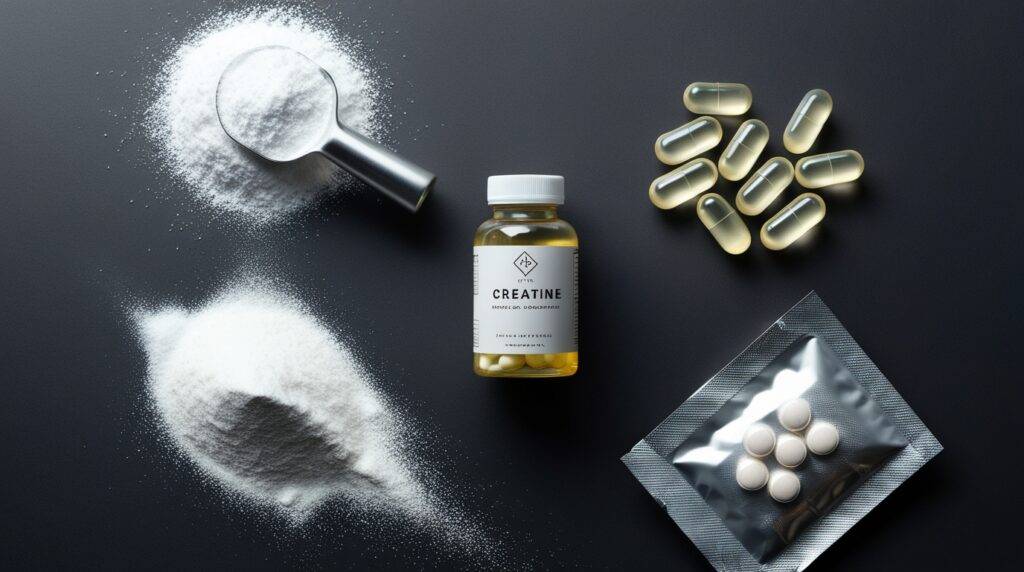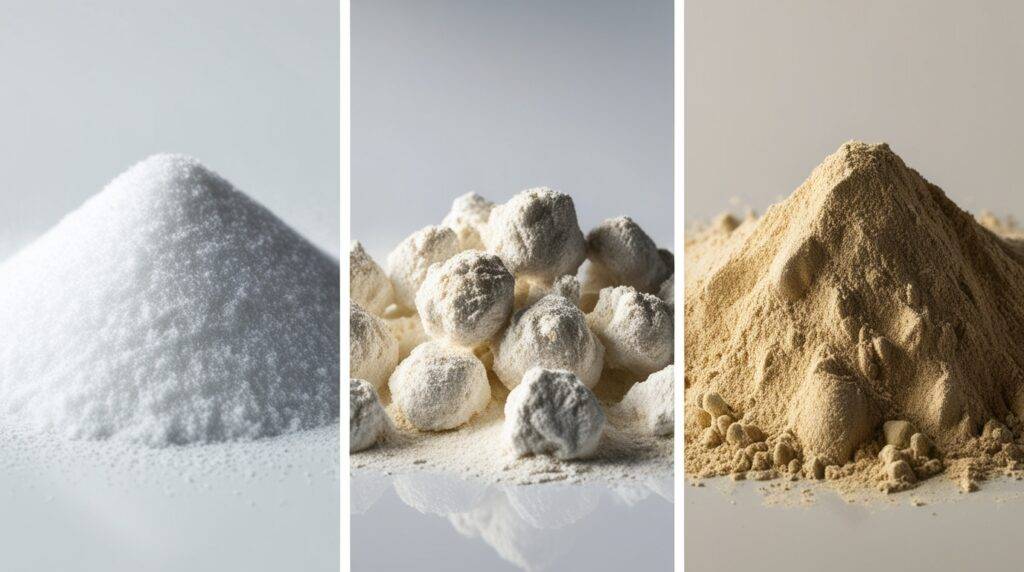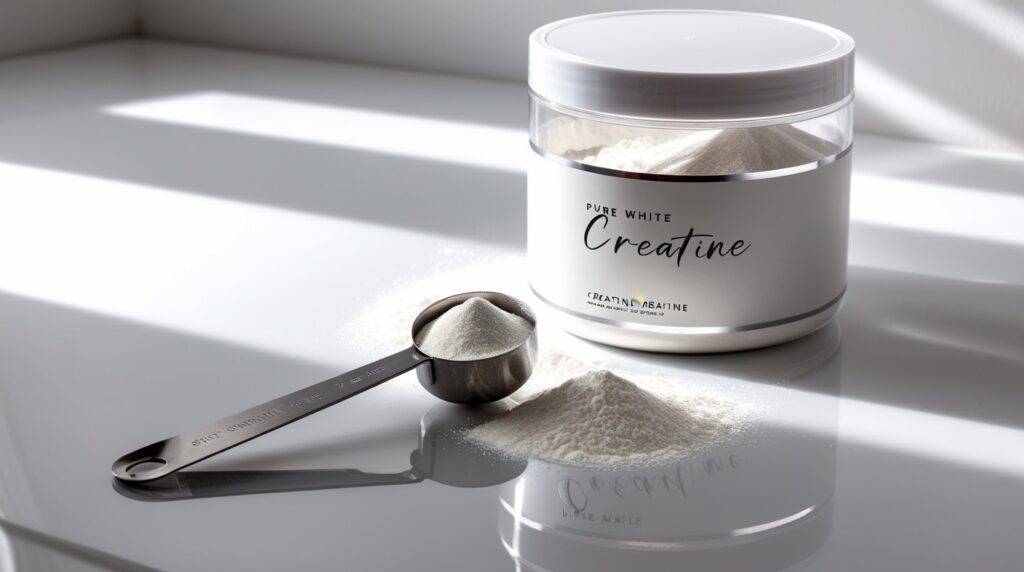Does Creatine Expire? – I always look for questions relating to body-building supplements. I research what people are talking about and what questions they have in mind. This also involves extensive internet searches about common concerns in the fitness journey. One trending topic in the fitness industry is whether creatine can be used beyond its expiry date. This question intrigued me and inspired me to share my thoughts and experiences on the matter.
Understanding Creatine And Expiry
What Is Creatine?
Creatine is a source of energy that is found naturally in muscle cells. It is an amino acid derivative from the amino acid arginine and glycine. It also helps us during heavy lifting or high-intensity exercise. Creatine can also be found in meat, fish, dietary supplements and animal milk.
Creatine is of course a popular supplement amongst bodybuilders, athletes, and health freaks. Our muscles store creatine as phosphocreatine when we are taking it. Later, as we need energy, our body can tap into the stored creatine and boost us with energy. Research has shown that it can amp up exercise performance, strength, and muscle growth and carries several health benefits, for eg. protection against neurological diseases.
Thus it shows that creatine is indeed safe to consume but questions are still hanging especially regarding its usability beyond its expiration date.
What Are The Benefits of Creatine?
There are studies that show that creatine is really effective for people who work out regularly. Let’s talk about some of the benefits creatine has provided over the years:
Better Exercise Performance
Creatine supplement intake has been shown to improve workout performance. Creatine can increase anabolic cells and improve cell signalling helping us to exercise harder and for longer periods.
Improved Post-Exercise Recovery
According to the latest evidence, creatine supplements can enhance recovery after heavy workouts and reduce muscle damage.
Avoid Injuries
According to studies, creatine supplements can prevent dehydration and muscle cramps, which can help to reduce the chances of injuries.
Reduce Neurological Diseases
There is limited research on this topic but creatine can help reduce neurological diseases and improve brain health. It can help with faster cognitive processing, brain functioning and even trauma recovery.
How Many Types of Creatine Are There?
There are various types of creatine supplements in the market and some are listed below:
Creatine Monohydrate
It is one of the most popular creatine supplements made with creatine and one water molecule.
Creatine Ethyl Ester
When a monohydrate is attached to an ester, it becomes creatine ethyl ester. Esther can help decrease bloating and ethyl accelerates the breakdown of creatine.
Creatine Hydrochloride (HCL)
It helps with the improvement of the body’s creatine absorption.
Creatine Gluconate
This can be consumed orally and can improve heart contractility and function by increasing ATP levels in the cells.
Buffered Creatine
This is creatine mixed with magnesium for better absorption into the body.
Liquid Creatine
There is still ongoing research about ready-to-drink creatine supplements. However, creatine may break down and liquefy after it remains in liquid for days.

Image Source: Leonardo.Ai
Image Author: Muscle Theory
Does Creatine Actually Expire?
Most creatine supplements have an expiry date of 2-3 years after production. However, many studies show that they have a longer shelf life beyond the expiry date. One way to measure if creatine expires is for scientists to measure the level of creatinine, which is a waste product of creatine, produced when it starts to degrade. Creatine is less effective if there is a high amount of creatinine.
Creatine monohydrate is a stable supplement. At high temperatures and room temperatures, creatine monohydrate remained stable for three years and creatinine level rose only after 44 months at 140 Fahrenheit. And it only becomes less effective, not dangerous.
But study also shows that other forms of creatine, such as liquid creatine and creatine salts have reduced stability and may turn into creatinine more quickly, compared to creatine monohydrate. So, whatever may be the fact, throw out your creatine when you are in doubt.
Is It Safe To Consume Expired Creatine?
Creatine is safe to consume in general. Creatine monohydrate is a stable supplement and remains consumable up to several years after its expiration date, given there are no potential side effects.
You should remember that clumpy creatine does not mean that it has expired; it has just been damp. It has just become potent and will not make you sick.
In contrast to clumpy creatine, if you happen to see that your creatine has changed from its original colour, tastes different, or has a weird smell, then it’s best to throw away that creatine. If these changes occur, it may be likely due to bacteria growth in your creatine but it’s normally unlikely.

Image Source: Leonardo.Ai
Image Author: Muscle Theory
How To Store Creatine And Extend Shelf Life?
In order to extend the shelf life of your creatine supplements, you must know how to properly store it. Keep them inside an airtight jar and store them in a cool and dry place.
If your creatine container is exposed to sunlight or any kind of UV will cause it to break down to creatine faster due to the high temperature. So, it’s best to keep creatine away from direct sunlight, to avoid its degradation and loss of potency.

Image Source: Leonardo.Ai
Image Author: Muscle Theory
Some More Useful Tips To Store Your Creatine
- Don’t remove the silica pads if your creatine has any.
- Close the lid tightly after every use.
- Make sure the area does not have any moisture.
- Check if your creatine has developed any clumpiness.
Frequently Asked Question
What is the shelf-life of creatine supplements?
Most of the creatine supplements have a shelf life of 2-3 years but according to some studies, they may have a shelf life beyond its expiration date.
Can you consume expired creatine?
Creatine monohydrate powder is considered safe to consume for a few years even after it has expired. To do so, it needs to be properly stored with no contamination.
How to tell if your creatine has expired?
If your creatine changes colour, has a bad odour and tastes different, it’s better to throw away the tub.
Does clumpy creatine indicate that it has expired?
Not really. It simply means that the creatine has been exposed to moisture and lost potency, but is safe to consume.
What’s the most popular and stable creatine?
Creatine monohydrate is the most popular and stable form of creatine supplements.
How do you store creatine and extend its shelf life?
Store your creatine in an airtight container, in a cool, dry place and away from direct sunlight.
What are the main benefits of taking creatine?
Creatine can improve exercise performance, help with after-exercise recovery, prevent injury and provide neurological benefits.
Does liquid creatine expire faster than powder creatine?
Yes, liquid and salt creatine are less stable compared to powder creatine, hence they turn to creatinine more quickly.
What happens when creatine degrades?
As creatine degrades, it loses its stability and turns to creatinine, which is a waste product of creatine. Thus, it becomes less effective.
The Bottom Line
Creatine is known to be one of the popular supplements. It has a much longer shelf life and expiry date in contrast to other protein powders.
Creatine monohydrate is the most common type of creatine supplement and is a stable one. Although creatine supplements last 2-3 years longer than their expiry date, it’s better to be safe than sorry and throw away yours if you think that it has gone bad or stale.
Creatine is unlikely to cause any unwanted side effects, if it is stored properly in a cool, dry place and away from sunlight. Since it is an inexpensive product, even if it goes bad, you can always buy another tub!
References
- Healthline. (2019, October 21). Does creatine expire? https://www.healthline.com/nutrition/does-creatine-expire
- SET for SET. (n.d.). Does creatine expire & how long does it take? https://www.setforset.com/blogs/news/does-creatine-expire


Pingback: Creatine Gummies vs Powder: Which Is Best?